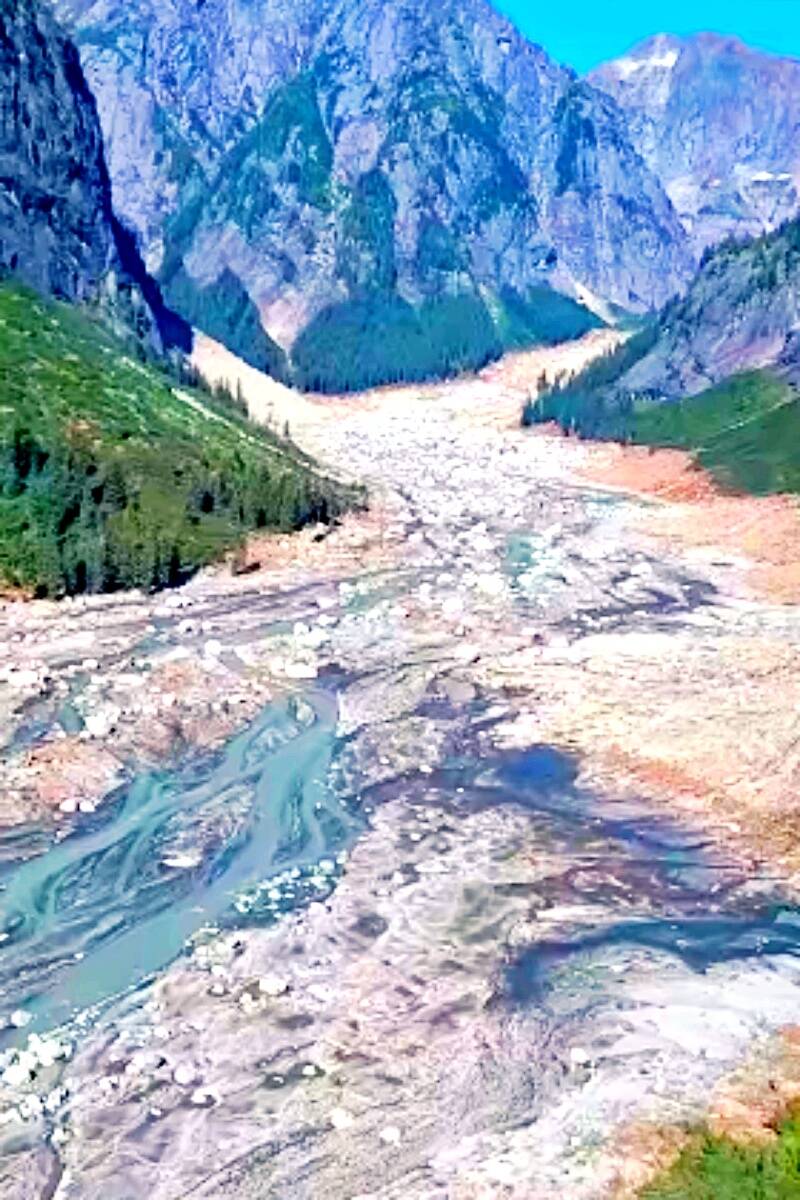A landslide beside the Ecstall River near Prince Rupert is threatening the future of up to 100,000 spawning fish.
“Essentially, a whole side of a mountain collapsed into the very upper reaches of the Ecstall River and it caused a massive landslide about halfway down the river valley. So it’s taken out the whole upper part of the river valley,” Greg Knox, executive director at SkeenaWild Conservation Trust, said on Sept. 20.
The Ecstall River, located 35 kilometres southeast of Prince Rupert, feeds into the Skeena River just before it reaches the ocean.
Stan Walker, who works for Fisheries and Oceans Canada (DFO), captured footage of the landslide, which was posted on the SkeenaWild Conservation Trust Facebook page.
Walker flies over the lower Skeena and its tributaries regularly in the fall to count salmon and he was the one who discovered the slide, Knox said.
The slide is remote and not populated which is making it difficult to assess when the slide happened, however it appears to be a natural event, a spokesperson for the DFO said in an email to The Northern View. The slide was first seen on Sept. 12.
There are significant populations of coho salmon that return to the upper Ecstall River each year to lay eggs. There are also chum and chinook salmon, steelhead and other species of trout and char, Knox said.
Following the landslide, silt and sediment poured into the upper river, which is particularly detrimental to the fish because many of them have either already laid or are just about to lay their eggs.
If debris settles on top of the eggs it will prevent water and therefore oxygen from reaching them over the winter which will suffocate them.
Knox said likely more than 10,000 fish have been impacted by the slide, possibly more than 100,000.
There are significant populations of salmon that all use the river system and in an average year, over 100,000 fish will lay eggs there, he said.
At this point, there is not very much that can be done to mitigate the potential damage.
“It’s really just assessing what the likely impacts are, but there probably needs to be some longer-term monitoring to see how the fish populations adapt over time. It will likely take several years, potentially decades for the system to re-stabilize, and in the future, salmon will adapt. It’s just a matter of how long it will take.”
“The bright spot is that there are some significant tributaries in the lower Ecstall River that have large salmon populations,” Knox said. “So hopefully they’ve been unaffected.”
In addition to the impact on fish, any wildlife that was living in the upper part of the valley would have been killed during the landslide, he added.
The DFO told Black Press Media that they are collecting information and assessing impacts at this time and that additional monitoring will occur in the next few weeks to evaluate potential effects on salmon habitat or migration.
READ MORE: Prince Rupert All Candidates Forum is Sept. 26 at the Lester Centre for the Arts
READ MORE: Prince Rupert off-duty paramedic saves neighbour from house fire
Kaitlyn Bailey | Local Journalism Initiative Reporter
Send Kaitlyn email
Send The Observer email
Like the The Northern View on Facebook
Follow us on Twitter

